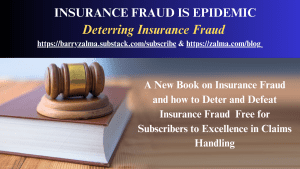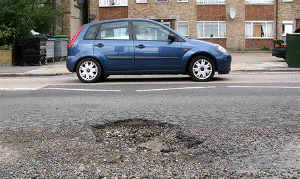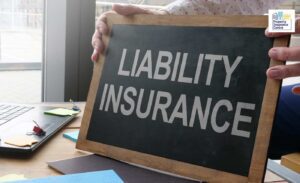All About Non-Standard Auto Insurance

THURSDAY, JULY 28, 2022
It seems obvious that when people are seeking auto insurance, they are confused when they hear the term “non-standard.” Most motorists are more concerned with monthly costs and coverage than knowing the difference between standard and non-standard auto insurance. Standard auto insurance may, however, may not be appropriate in some circumstances; and when this happens, it’s important to know the difference.
When it comes to vehicle insurance, drivers are often divided into one of three categories: standard, nonstandard, and the residual market. According to insurance firms, drivers who qualify for nonstandard vehicle insurance have a greater likelihood of filing claims than those who can obtain standard auto insurance. They pay greater insurance premiums as a result of that risk.
Non-standard insurance refer to coverage for drivers whose demands do not fall into standard insurance categories, such as automobile insurance for someone who does not own a car. Non-standard auto insurance is occasionally sold alongside standard coverage by major carriers, or through subsidiary non-standard insurance firms. Some independent firms specifically provide non-standard or high-risk vehicle insurance.
To find cheap auto insurance check out these links
Cheap Auto Insurance – Get A Quote
Save Money Car Insurance Home Page
What You Need To Know About Non-Standard Insurance
Drivers who have a less-than-perfect driving history may occasionally be labeled as non-standard drivers. This includes those who have had their licenses suspended or revoked, been found guilty of DWI or DUI, or committed many traffic violations.
Senior citizens, young drivers, and inexperienced drivers are all regarded as non-standard drivers.
Some companies only accept standard drivers, significantly restricting the number of consumers they may handle. There are also many non-standard vehicle insurance providers on the market, but they are not all the same. It’s vital to select a carrier that will take your specific demands into account and give inexpensive coverage that works for you.
How Does Non-Standard Auto Insurance Work?
Non-standard vehicle insurance is the most costly tier of coverage. It is designated for drivers who are deemed too dangerous for insurance companies to cover at standard rates. As aforementioned, Insurers usually divide their coverage into three risk categories: preferred, standard, and non-standard. Customers in the preferred tier pay the lowest insurance premiums, while those in the non-standard tier pay the highest rates – even if their coverage is the same.
These classifications assist carriers in properly calculating their risk exposure and remaining solvent. If you’ve been convicted of DUI or filed many accident claims in the last few years, for example, you constitute a larger statistical risk to your insurer. As a result, you’ll be classified as a non-standard driver, and your premiums will be significantly higher than average.
If you are regarded as too risky, the insurance company may cancel your policy, and you will need to obtain coverage from an insurance company that specializes in non-standard vehicle insurance to continue driving. You may also be classified as a high-risk driver if you are under the age of 25, above the age of 75, lack driving experience, or have a poor credit history.
Non-standard or high-risk vehicle insurance can be purchased in the same way as any other policy; however, your state may impose extra criteria based on your non-standard eligibility. For instance, if you are a young driver with Geico, the only difference between your insurance and that of a middle-aged driver is the rate. The procedure for purchasing insurance is the same.
Nevertheless, if your state mandated you to submit an SR-22 before re-registering your car, as it may if you were convicted of a DUI, your procedure will be different. In such a situation, you’ll need your insurance provider to complete the paperwork on your behalf to demonstrate to your state that you have sufficient vehicle insurance. Premiums for such a motorist would likewise rise significantly. You’ll also have to pay a little charge when you file.
How Much Does It Cost?
The cost of your non-owner insurance coverage may be determined by several factors. Of course, the level of coverage you want will influence how much you spend. Your driving history and the frequency with which you intend to use a car will also have an impact on the cost of your monthly payment.
Tips on cutting car insurance costs
Why Would Someone Need Non-Standard Car Insurance?
Keep in mind that there are several reasons why someone could require non-standard insurance. “High-risk” drivers are not usually those who are involved in accidents or make claims regularly. Below-average credit, previous insurance coverage history, and the state from where your license was issued can all contribute to a motorist being classified as high-risk.
Drivers could require non-standard insurance for the reasons listed below:
Credit history: One advantage provided by non-standard vehicle insurance firms is that you will not be rejected for appropriate coverage based on your credit rating. So, even if you have no or terrible credit, you may still acquire vehicle insurance.
High-risk drivers: those who have a less-than-perfect driving history due to license suspensions or revocations, a history of frequent driving offenses, or (DWI or DUI). If you wish to insure yourself as a driver, this policy provides liability coverage for drivers who do not own a car. This coverage covers the damages and injuries you cause while driving a loaned or leased vehicle, but it does not cover your injuries or damage to the vehicle.
Prior insurance coverage: If you’ve never been covered before, a standard auto insurance company may view you as a higher-risk driver and may refuse to create a policy for someone who does not have current or full vehicle insurance coverage. So, if you’ve been uninsured for six months to a year, your best bet may be to purchase vehicle insurance from a non-standard provider.
Lapse in coverage: Standard insurance companies are unable to determine if you have ever experienced a coverage lapse or filed a claim. You are a higher-risk driver as a result, and as was previously said, a standard firm will either reject you or charge you a higher premium. Your greatest option if your insurance has lapsed could be to look for coverage from a non-standard insurance provider.
Driving history: If you do not have a driving record in the United States or have a foreign license, a non-standard insurance provider will most likely be your only alternative. Non-standard firms frequently provide the greatest coverage for young drivers.
An SR-22 insurance policy: Your state could require you to have an SR-22 as proof of your financial responsibility if you’ve been charged with DWI/DUI or any other reckless driving offense.
Check out these resources to learn more about non-standard insurance!
How to find auto insurance after a DUI
How to find cheap auto insurance for bad drivers
How Can Anyone Get Non-Standard Auto Insurance?
You might not even need to change carriers because many of the larger auto insurance providers offer non-standard insurance choices. However, smaller and more specialized vehicle insurance firms could offer you better rates. Some auto insurance focuses on high-risk drivers and may provide those clients with more affordable premiums as a result.
Before choosing an insurance provider, it’s often a good idea to shop around and compare quotes to acquire the best coverage at the lowest cost. To set a benchmark for fair charges in your location, you might also want to look into the average cost of vehicle insurance in your state. When in doubt, speak with a professional insurance agent about your situation. You can explore all the possibilities available with the aid of a certified expert.
Best Non-Standard Car Insurance Companies
The best vehicle insurance providers provide their clients with more than just the necessary protection at a reasonable cost. They also provide a quote-to-claim experience that puts the needs of the consumer first, as well as a simple way to manage policies and make payments. Both mainstream and alternative insurers offer non-standard vehicle insurance. Coverage varies by state. However, a few of the best non-standard auto insurance providers are listed below.
Foremost
Founders Insurance
Bristol West also known as a subsidiary of Farmer
GEICO
Progressive
Dairyland
Titan
Acceptance Auto Insurance
Kemper Auto Insurance
Direct Auto Insurance
National General also known as a subsidiary of Allstate
Hallmark
Infinity
The General
Gainsco also known as a subsidiary of State Farm
Safe Auto
Your insurer may put you in their non-standard vehicle insurance category if previous traffic accidents or other issues have classified you as an unusually risky driver. These policies often offer the same coverage, but their costs are significantly more than those of standard vehicle insurance.
When compared to other people in their broad demographics, the driver represents a bigger financial risk, which is reflected in the higher cost. In general, accidents that result in financial loss contribute to increasing insurance premiums.
No Comments
Post a Comment
Name
Required
Required (Not Displayed)
Comment
Required
All comments are moderated and stripped of HTML.
NOTICE: This blog and website are made available by the publisher for educational and informational purposes only.
It is not be used as a substitute for competent insurance, legal, or tax advice from a licensed professional
in your state. By using this blog site you understand that there is no broker client relationship between
you and the blog and website publisher.
Blog Archive
2022
2021
2020
2019
2017
2016





